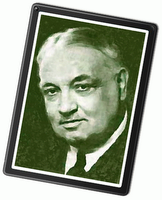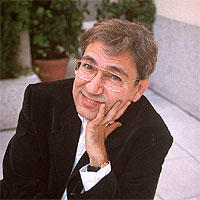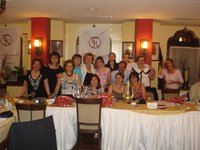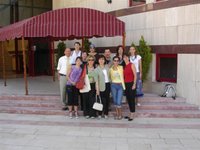MUSEUMS

IF YOU CLICK ON THE BLUE WORDS, YOU CAN SEE AROUND THE MUSEUMS IN TURKEY.
MAVÝ YAZILARIN ÜZERÝNE TIKLAYIN, GEZÝN
Abana , Adana , Afyon , Ahlat , Akdamar , Aksaray , Alacahöyük , Alanya ve Side , Amasra , Amasya , Anamur , Ani , Ankara , Anýt Kabir , Ankarada Anadolu Medeniyetleri Müzesi , Antakya , Antakya müze , Antalya , Termessos , Perge , Artvin , Assos , Ayvalik, Ballýca Maðarasý , Balýkesir , Bergama , Birecik , Bitlis , Bodrum , Boðazkale , Boyabat , Bursa , Çanakkale , Çayeli , Cappadocia - içinde özel galeriler kiliseler ve þehirler var , Çorum , Dalyan , Didyma, Divriði , Diyarbakiýr , Doðubeyazit , Edirne , Efes , Erzincan , Eðirdir, Erzurum , Eskiþehir , Fethiye , Gaziantep, Göreme , Harran , Hasankeyf , Ihlara, Inebolu , Isparta , Istanbul 1 , Istanbul 2 , Istanbul 3 , Istanbul Levent , Istanbul Yedinci Tepe , Istanbul Pera , Istanbul dolaþý , Istanbul Üsküdar , Istanbul Boðazý , Istanbul Aya Sofia , Istanbul Kariye Müzesi , Istanbul Top Kapý Saray , Istanbul Arkeoloji Müzesi , Istanbul Çinili Kösk Müzesi , Istanbul Asker ve Deniz Müzesi , Istanbul Dolmabahçe Saray , Türk ve Islam Eserleri Müzesi , Izmir , Izmit, Iznik , Kahramanmaraþ , Karaman, , Kars, Ani ve Hopa ile , Kaþ ve Patara , Kasaba, Kastamonu , Kayseri, Knidos , Konya , Kütahya, Malatya , Mardin , Mersin , Midyat , Milas , Miletus ve Priene , Muðla , Muþ , Mustafapasha , Niðde , Niksar , Ordu, Ortahisar , Pamukkale, Hierapolis ve Aphrodisias ile , Samsun , Þ;anlýurfa , Sardis / Sart , Selþuk , Siirt , Silifke, Sinop , Sivas , Tarsus , Taþköprü ve Kale Kapý , Tekkiraz ve Akkuþ , Tercan, Tire , Tokat , Trabzon, Turhal ve Zile , Uçhisar , Ünye , Urfa , Ürgüp , Üsküdar , Van , Yalvaç and Antioch Pisidian , Yazýlýkaya , Zile ve Turhal
MAVÝ YAZILARIN ÜZERÝNE TIKLAYIN, GEZÝN
Abana , Adana , Afyon , Ahlat , Akdamar , Aksaray , Alacahöyük , Alanya ve Side , Amasra , Amasya , Anamur , Ani , Ankara , Anýt Kabir , Ankarada Anadolu Medeniyetleri Müzesi , Antakya , Antakya müze , Antalya , Termessos , Perge , Artvin , Assos , Ayvalik, Ballýca Maðarasý , Balýkesir , Bergama , Birecik , Bitlis , Bodrum , Boðazkale , Boyabat , Bursa , Çanakkale , Çayeli , Cappadocia - içinde özel galeriler kiliseler ve þehirler var , Çorum , Dalyan , Didyma, Divriði , Diyarbakiýr , Doðubeyazit , Edirne , Efes , Erzincan , Eðirdir, Erzurum , Eskiþehir , Fethiye , Gaziantep, Göreme , Harran , Hasankeyf , Ihlara, Inebolu , Isparta , Istanbul 1 , Istanbul 2 , Istanbul 3 , Istanbul Levent , Istanbul Yedinci Tepe , Istanbul Pera , Istanbul dolaþý , Istanbul Üsküdar , Istanbul Boðazý , Istanbul Aya Sofia , Istanbul Kariye Müzesi , Istanbul Top Kapý Saray , Istanbul Arkeoloji Müzesi , Istanbul Çinili Kösk Müzesi , Istanbul Asker ve Deniz Müzesi , Istanbul Dolmabahçe Saray , Türk ve Islam Eserleri Müzesi , Izmir , Izmit, Iznik , Kahramanmaraþ , Karaman, , Kars, Ani ve Hopa ile , Kaþ ve Patara , Kasaba, Kastamonu , Kayseri, Knidos , Konya , Kütahya, Malatya , Mardin , Mersin , Midyat , Milas , Miletus ve Priene , Muðla , Muþ , Mustafapasha , Niðde , Niksar , Ordu, Ortahisar , Pamukkale, Hierapolis ve Aphrodisias ile , Samsun , Þ;anlýurfa , Sardis / Sart , Selþuk , Siirt , Silifke, Sinop , Sivas , Tarsus , Taþköprü ve Kale Kapý , Tekkiraz ve Akkuþ , Tercan, Tire , Tokat , Trabzon, Turhal ve Zile , Uçhisar , Ünye , Urfa , Ürgüp , Üsküdar , Van , Yalvaç and Antioch Pisidian , Yazýlýkaya , Zile ve Turhal




 Istituto "Dante Alighieri"
Istituto "Dante Alighieri"  I.E.S. "La Jarcia"
I.E.S. "La Jarcia" Necdet Seckinöz Ilkögretim Okulu
Necdet Seckinöz Ilkögretim Okulu